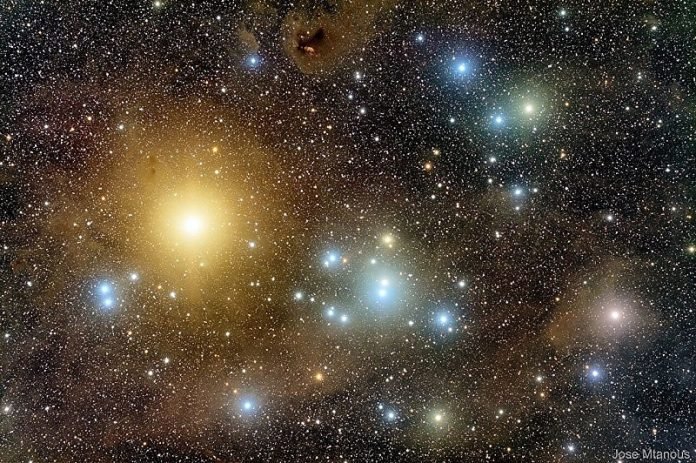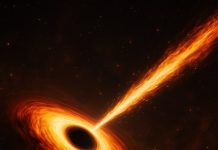
Imagine having mysterious cosmic monsters right next door!
Scientists say they might have found the closest black holes to Earth ever, and guess where they are?
In the Hyades star cluster, the closest star group to our solar system!
A bunch of scientists led by Stefano Torniamenti from the University of Padua in Italy made this amazing discovery.
They worked closely with Mark Gieles and Friedrich Anders, professors at the University of Barcelona. They made their findings while Torniamenti was visiting Barcelona’s ICCUB, a famous space research center.
Black holes are like space vacuums that suck in everything, even light! They’re mysterious and super interesting to scientists.
Especially the smaller black holes, which have been in the spotlight since 2015 when researchers first detected gravitational waves—basically, ripples in space-time. These waves often show up when two small black holes crash into each other.
Now, you might be wondering how the scientists guessed that there might be black holes in the Hyades cluster.
Well, they used computers to simulate or “pretend-play” what the stars in the cluster are doing.
They compared this pretend-play with real data from a space telescope called Gaia, which tells us where stars actually are and how fast they’re moving.
What they found is really cool. The Hyades cluster only makes sense in their computer games if there are some black holes in it.
Torniamenti says, “Our pretend-play only works if there are black holes in the center of the cluster, or if they were there not too long ago.” So, it’s either two or three black holes in there right now or some that were kicked out not long ago.
And if it’s true, these black holes would be way closer to us than any other known black holes. We’re talking about a cosmic hop, skip, and a jump—only 150 light-years away, compared to the previous closest one at 480 parsecs (or 1,566 light-years)!
So, why should you care? Well, understanding black holes is like solving a big cosmic puzzle. This discovery could tell us a lot about how stars live and die in clusters and how these clusters might make gravitational waves.
Mark Gieles, who was a part of this research, says, “This helps us understand how black holes shape star groups and how star groups can make gravitational waves.”
In simpler words, these black holes in our cosmic backyard could teach us about the biggest mysteries of the universe.
So the next time you look up at the stars, remember: some of the most amazing and mysterious things in space might be closer than you think!
Follow us on Twitter for more articles about this topic.
Source: University of Barcelona.



